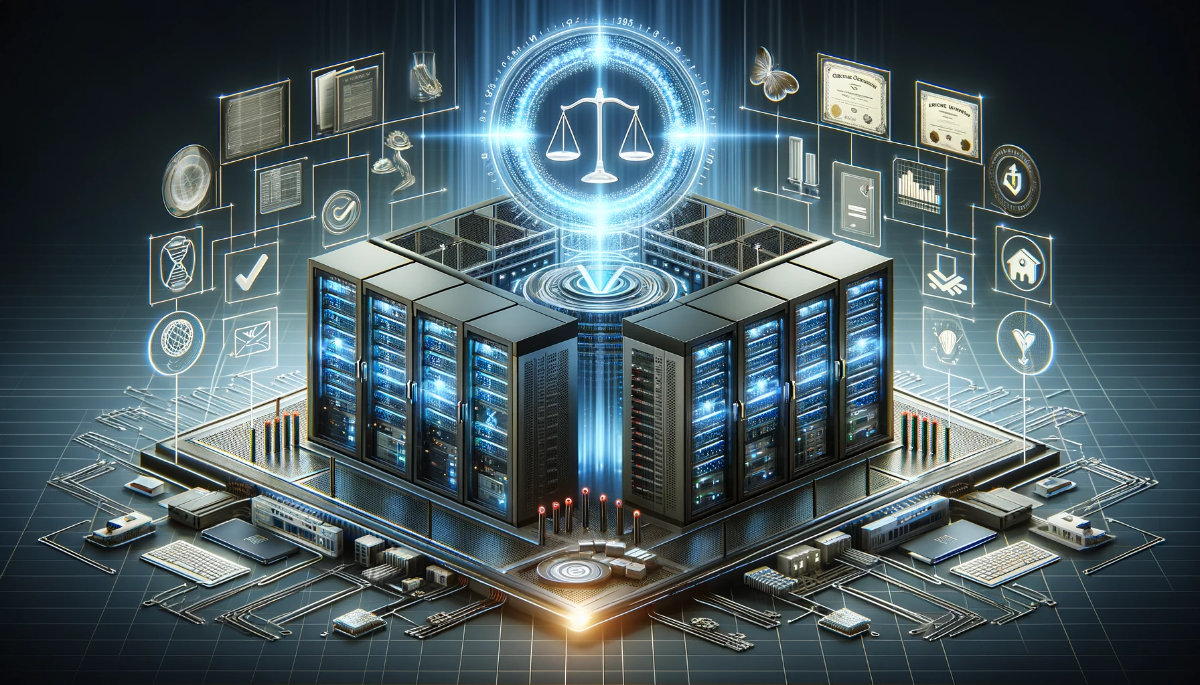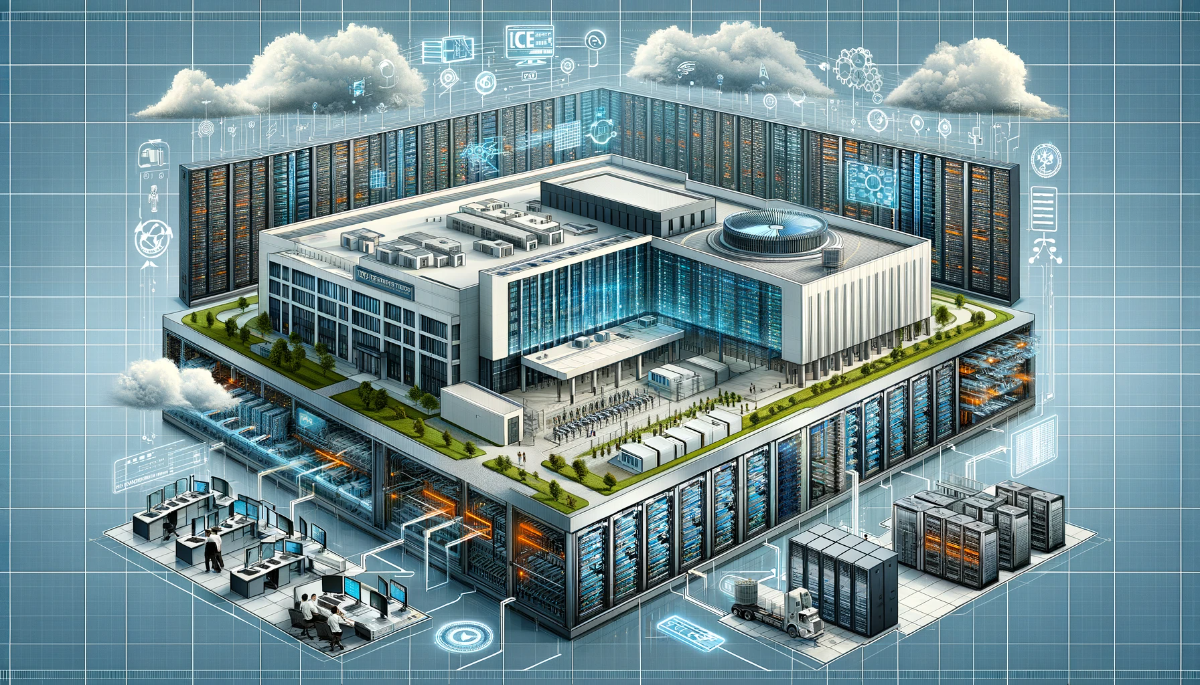Data center compliance services refer to the set of practices and procedures that ensure a data center meets the regulatory requirements and industry standards for security, privacy, and operational efficiency. These services are crucial for businesses that rely on data centers to store and process sensitive information. Compliance ensures that data centers adhere to legal and industry regulations, protecting the integrity and confidentiality of data.
Compliance is of utmost importance in data centers due to the sensitive nature of the information they handle. Data centers store and process vast amounts of data, including personal and financial information of individuals and businesses. Non-compliance can lead to severe consequences, such as data breaches, legal penalties, reputational damage, and loss of customer trust. Therefore, it is essential for data centers to prioritize compliance to mitigate these risks and ensure the smooth operation of their business.
Key Takeaways
- Data center compliance services ensure that data centers meet regulatory requirements and industry standards.
- Staying up to code is crucial for data centers to avoid legal and financial penalties, as well as reputational damage.
- Data center compliance regulations vary by industry and location, and it’s important to understand them to ensure compliance.
- Common compliance standards for data centers include HIPAA, PCI DSS, and SOC 2.
- Compliance audits and assessments help identify areas of non-compliance and provide recommendations for improvement.
The Importance of Staying Up to Code
Non-compliance with data center regulations can have severe consequences for both the data center itself and the businesses that rely on its services. One of the most significant consequences is the risk of a data breach. Data breaches can result in the exposure of sensitive information, leading to financial loss, legal liabilities, and damage to a company’s reputation. In addition, non-compliance can result in hefty fines and penalties imposed by regulatory authorities.
On the other hand, staying up to code and maintaining compliance brings several benefits for data centers. Compliance ensures that data centers have robust security measures in place to protect sensitive information from unauthorized access or breaches. It also helps build trust with customers, as they can be confident that their data is being handled in a secure and compliant manner. Compliance also improves operational efficiency by streamlining processes and ensuring best practices are followed.
Understanding Data Center Compliance Regulations
Data center compliance regulations vary depending on the industry and geographical location. However, there are some common regulations that most data centers need to comply with. These include the General Data Protection Regulation (GDPR), Payment Card Industry Data Security Standard (PCI DSS), Health Insurance Portability and Accountability Act (HIPAA), and International Organization for Standardization (ISO) standards.
Compliance with these regulations is crucial for data centers as it ensures the protection of sensitive data and the privacy rights of individuals. Failure to comply can result in legal consequences, including fines and penalties. Compliance also helps data centers establish a strong reputation in the industry, attracting more customers who value security and privacy.
Common Compliance Standards for Data Centers
In addition to regulations, data centers also need to comply with industry standards that define best practices for security, reliability, and efficiency. Some of the common compliance standards for data centers include the Uptime Institute’s Tier Classification System, the Telecommunications Industry Association’s TIA-942 standard, and the Information Technology Infrastructure Library (ITIL) framework.
Compliance with these standards is essential as they provide guidelines for designing, building, and operating data centers to ensure optimal performance and reliability. Following these standards helps data centers minimize downtime, improve energy efficiency, and enhance overall operational effectiveness. Compliance with industry standards also demonstrates a commitment to excellence and professionalism, giving data centers a competitive edge in the market.
Compliance Audits and Assessments
Compliance audits and assessments are essential components of maintaining compliance in data centers. These processes involve evaluating the data center’s policies, procedures, and infrastructure to ensure they meet the requirements of regulations and standards. Audits can be conducted internally by a dedicated compliance team or externally by third-party auditors.
Regular audits and assessments are crucial as they help identify any gaps or weaknesses in the data center’s compliance practices. They provide an opportunity to rectify any issues before they lead to non-compliance or security breaches. Audits also help data centers stay up to date with changing regulations and industry standards, ensuring ongoing compliance.
Compliance Risk Management Strategies
Compliance risk management involves identifying, assessing, and mitigating the risks associated with non-compliance. Data centers need to implement effective risk management strategies to ensure they are adequately prepared to address any compliance-related risks. These strategies include conducting risk assessments, implementing controls and safeguards, and developing incident response plans.
Effective risk management is crucial as it helps data centers proactively identify and address potential compliance risks before they become significant issues. It allows data centers to prioritize resources and investments to mitigate the most critical risks. By managing compliance risks effectively, data centers can minimize the likelihood of non-compliance and its associated consequences.
Best Practices for Maintaining Compliance
Maintaining compliance in data centers requires following best practices that align with regulatory requirements and industry standards. Some of the best practices include implementing strong access controls, regularly patching and updating systems, conducting regular security audits, encrypting sensitive data, and training staff on security protocols.
Following best practices is essential as they provide a framework for ensuring the security and integrity of data in data centers. They help data centers establish a culture of compliance and ensure that all employees are aware of their responsibilities in maintaining compliance. By adhering to best practices, data centers can minimize the risk of non-compliance and demonstrate their commitment to protecting sensitive information.
Compliance Training and Education for Data Center Staff
Training and education are crucial for ensuring that data center staff are aware of compliance requirements and understand their roles in maintaining compliance. Data center staff should receive regular training on security protocols, privacy regulations, industry standards, and best practices. This training should be tailored to the specific roles and responsibilities of each staff member.
Training and education are important as they empower data center staff to make informed decisions regarding compliance. They help staff understand the importance of compliance and the potential consequences of non-compliance. By investing in training and education, data centers can create a culture of compliance and ensure that all staff members are equipped with the knowledge and skills necessary to maintain compliance.
Partnering with Compliance Experts
Partnering with compliance experts can provide data centers with the guidance and expertise needed to navigate complex compliance requirements. Compliance experts have in-depth knowledge of regulations, standards, and best practices and can help data centers develop and implement effective compliance strategies. They can also conduct audits and assessments to ensure ongoing compliance.
Partnering with compliance experts is crucial as it allows data centers to leverage the expertise of professionals who specialize in compliance. It helps data centers stay up to date with changing regulations and industry standards, ensuring ongoing compliance. By partnering with experts, data centers can minimize the risk of non-compliance and focus on their core business operations.
The Benefits of Achieving Compliance in Data Centers
Achieving compliance in data centers brings several benefits for businesses. Firstly, compliance ensures the protection of sensitive information, reducing the risk of data breaches and associated legal liabilities. Compliance also helps build trust with customers, as they can be confident that their data is being handled in a secure and compliant manner. This trust can lead to increased customer loyalty and a competitive advantage in the market.
Furthermore, compliance improves operational efficiency by streamlining processes and ensuring best practices are followed. It helps data centers identify areas for improvement and implement measures to enhance performance and reliability. Compliance also demonstrates a commitment to excellence and professionalism, enhancing the reputation of the data center in the industry.
In conclusion, data center compliance services are essential for ensuring the security, privacy, and operational efficiency of data centers. Compliance helps protect sensitive information, mitigate risks, and build trust with customers. It also ensures that data centers adhere to regulatory requirements and industry standards. By prioritizing compliance, data centers can minimize the risk of non-compliance and its associated consequences while reaping the benefits of a secure and compliant operation.
If you’re interested in learning more about data center compliance services and staying up to code, you may find the article “Securing Information with Data Center Security: Best Practices for Physical and Digital Measures” informative. This article dives into the importance of implementing robust security measures in data centers to protect against cyber attacks and ensure data integrity. It provides valuable insights and practical tips for maintaining a secure environment both physically and digitally. Check it out here.
FAQs
What are data center compliance services?
Data center compliance services are a set of practices and procedures that ensure a data center meets regulatory requirements and industry standards. These services help organizations maintain the security, availability, and integrity of their data.
Why is compliance important for data centers?
Compliance is important for data centers because it helps organizations avoid legal and financial penalties, reputational damage, and loss of customer trust. Compliance also ensures that data centers are secure and reliable, which is critical for businesses that rely on data to operate.
What are some common compliance standards for data centers?
Some common compliance standards for data centers include HIPAA, PCI DSS, SOC 2, ISO 27001, and GDPR. These standards cover a range of requirements related to data security, privacy, availability, and integrity.
What services do data center compliance providers offer?
Data center compliance providers offer a range of services, including compliance assessments, gap analysis, risk management, policy development, training and awareness, and ongoing monitoring and reporting. These services help organizations identify and address compliance gaps and maintain ongoing compliance.
How do data center compliance services help organizations stay up to code?
Data center compliance services help organizations stay up to code by providing a comprehensive approach to compliance that includes assessments, risk management, policy development, training, and ongoing monitoring and reporting. These services help organizations identify and address compliance gaps and maintain ongoing compliance with regulatory requirements and industry standards.






